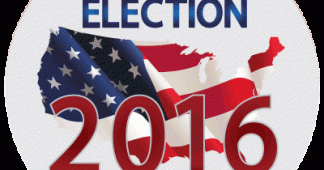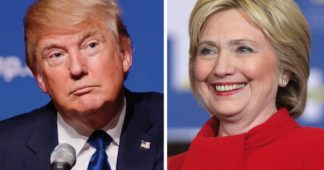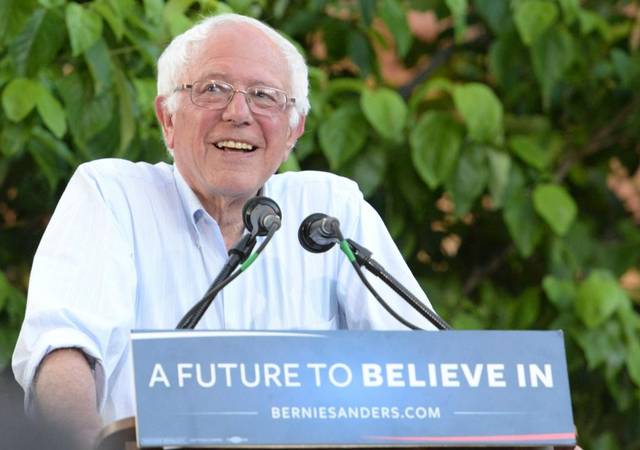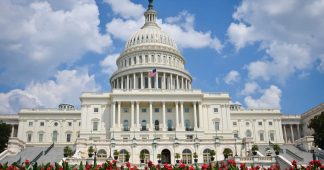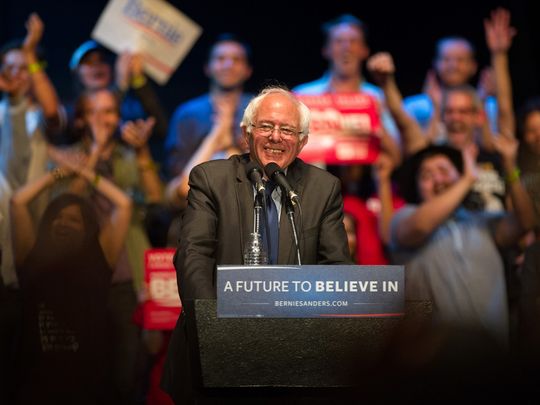By Deena Stryker
For the first time since my return to the US in 2000 – and taking into account my ten-year stay in the seventies — I see Americans losing faith in their system of government.
During the Watergate years, they were angry, as they had been during the Vietnam War, when students freely called policemen ‘pigs’ and were shot at by National guardsmen on a US campus.
After 9/11, Americans became a bit nervous, but continued to be confident in the ultimate goodness of their country. Few were the voices saying ‘They hate us because we make war on their countries’, most preferring to believe President Bush’s claim that Muslims hate us because of our freedom.
When the 2016 presidential campaign began, over a year ago, two unusual things suggested that it would be different from all the others: a socialist and a nationalist both began to draw enthusiastic crowds against what was expected to be the first female president, in a country known for the power of its women. The socialist was eliminated using dubious means, and now, a week before the vote, Americans are exhibiting outright despair, knowing it is useless to vote for either alternative candidate – a green and a libertarian — who poll in the single digits and were not allowed to participate in the presidential debates.
Despair is especially visible among older Americans, who through thick and thin (Vietnam, Watergate, Irangate, Bush-gate (where a recount was halted by the Supreme Court, handing the presidency to Bush, although Gore had a few hundred more votes) never lost the faith.
When Donald Trump declared on national television that he could shoot someone in broad daylight on Fifth Avenue and he would not lose any supporters, they wondered whether to laugh or cry, but as his support grew, they cried, because they considered that Hillary was a walking artifice .
Eleven days before the election, James Comey, the highly respected head of the FBI, announced that his agency would investigate thousands of emails found on a laptop that Hillary Clinton’s closest aide, Huma Abedin, had shared with her now estranged husband, Anthony Wiener, who is being investigated for ‘sexting’ with a minor. This created a firestorm in Washington, with politicians and journalists criticizing the head of the agency that everyone had feared since the days of J. Edgar Hoover — and Joe McCarthy. Democrats insisted it should investigate the Russian business dealings of Donald Trump’s former campaign manager, Paul Manafort — as if Vice President Biden’s son Hunter had not been appointed to the board of a Ukrainian energy company when, in 2014, the US-led replaced the democratically elected Ukrainian president with one who relies heavily on neo-fascist militias harking back to World War II.
Most Americans continue to believe that the fact that foreigners flock to our shores proves that the US is a force for good. But the presence of two shady characters at the top of the main parties’ tickets has literally pulled the rug out from under them. Since nothing like this has ever happened before, they can only despair. It’s as if they had lost a loved one, following medical assurances that all would be well.
After 9/11, Americans asked ’Why?’ Now they ask ‘How’?
How did we get to the point where voters do not want to see either major party candidate in the White House? The answer is pretty straightforward: it starts with a school system that requires students to mindlessly pledge allegiance to their country’s flag, then sing a song written during the War of Independence that celebrates military victory. (The pledge of allegiance is finally being questioned by sports stars, mainly black, who have taken to kneeling or sitting when it is being played before their games, as a silent reminder that ‘Black Lives Matter’.)
In addition to an emphasis on competitive sports, the making of the American voter continues with biased curricula affirming his country can do no wrong. The historical claim that the United States is ‘exceptional’ is newly buttressed by the assertion that it is ‘the indispensable nation’. Politicians warn ominously that “If we don’t ‘step up to the plate’ no one else will”, in a harmless-sounding reference to baseball, where each pitcher in turn steps up to the ‘plate’ marking the spot from which he must throw the ball.
Sports has so central a place in daily American lives that TV presenters often lighten up the news by commenting on the latest football or baseball game, their respective ‘seasons’ being fall and spring. Few Americans regularly read the alternative press (the highly educated because they cannot imagine questioning the NYT, the others because no one has ever told them that they are being fed a lot of lies).
In any case, most Americans believe it would be unpatriotic to question the media, originally known as ‘the government’s watchdog’.
Older people especially, cannot allow themselves to imagine that everything they have always believed about their ‘great country’ is simply not true. Confronted with the end of their world, they will be incapable of defeating whichever type of fascism the next president imposes: Donald’s citizen militias or Hillary’s reliance on militarily armed police.
